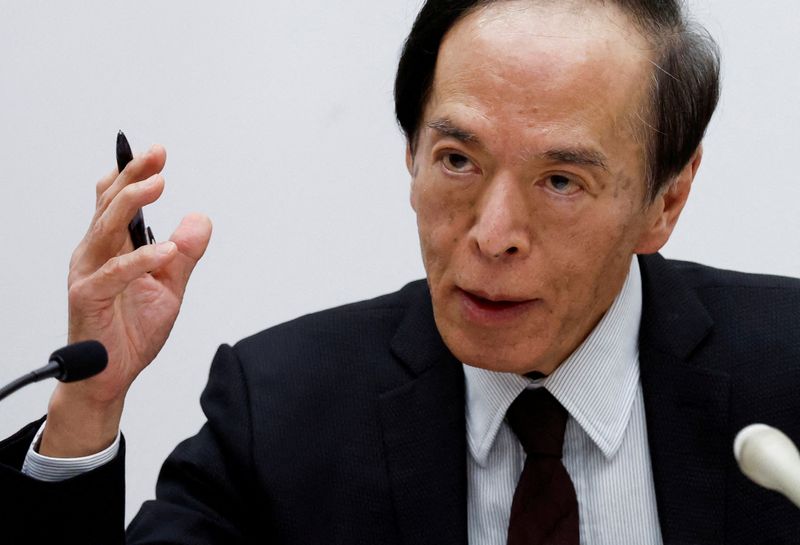By Leika Kihara
TOKYO (Reuters) -Bank of Japan Governor Kazuo Ueda said the country's inflation was accelerating as a trend as a tight labour market pushes up wages, reiterating the bank's conviction that conditions for ending negative interest rates were falling into place.
Speaking in parliament, Ueda said Japan's economy was likely to experience a positive cycle, in which higher job and wage growth leads to moderate rises in inflation.
"Service prices continue to rise moderately," he said on Thursday. "Trend inflation is also gradually accelerating. We will guide monetary policy appropriately in line with such moves."
He added that Japan was in a "state of inflation," rather than deflation, and is likely to see prices keep rising.
The 10-year Japanese government bond yield rose after the remarks, as investors focused on the chance of a near-term end to negative rates. It last stood at 0.725%.
Sources have told Reuters the BOJ was on track to end negative rates in coming months despite Japan's economy slipping into a recession, on growing signs that companies will continue to offer bumper pay amid a tightening job market.
A Reuters poll showed more than 80% of economists expected the BOJ to pull short-term interest rates out of negative territory in April.
Expectations that Japan's borrowing costs will remain very low, however, have pushed down the yen to around 150 against the dollar, a level seen by markets as heightening the chance of yen-buying intervention by Japanese authorities. The dollar stood at 150.26 yen on Thursday.
Finance Minister Shunichi Suzuki told the same parliament meeting that authorities were watching currency moves with a high sense of urgency.
He said the government had no "defence line" that could trigger action, as it was focusing more on the degree of volatility in exchange-rate markets.

Former BOJ board member Makoto Sakurai said the central bank could end negative rates as soon as March, but go slow with raising borrowing costs further.
"The BOJ will soon end negative rates but keep monetary conditions accommodative for several years, thereby giving the government time to pursue structural reforms," he told Reuters on Thursday.